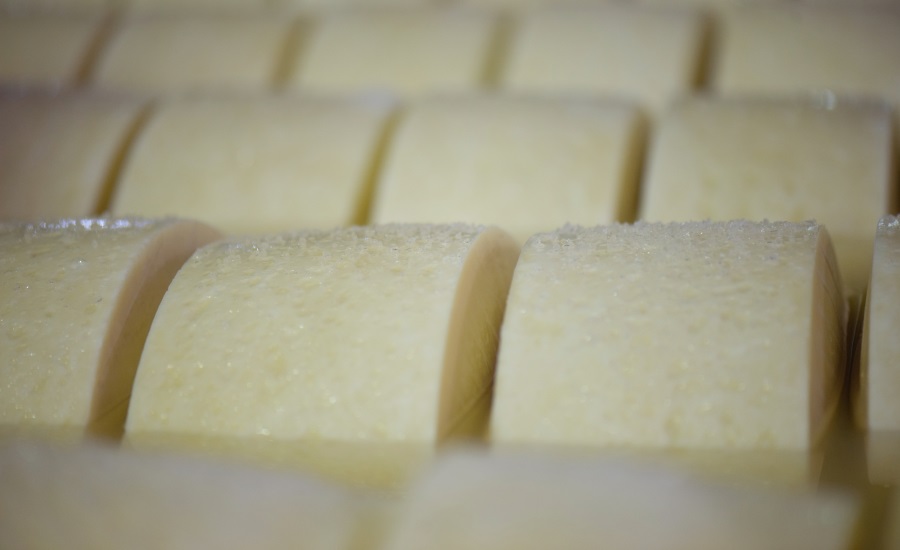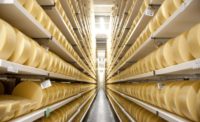Harm to Parm
Adulterated Parmesan hurts the cheese industry
Cutting grated cheese with extra starches and cellulose deceives consumers about how pure Parmesan should taste.

That Parmesan cheese you’re shaking on your spaghetti and meatballs might not be quite up to snuff.
One cheesemaker told Dairy Foods that some plants are cutting back on the cheese ingredients and replacing them with starches. There’s nothing wrong with adulterating cheese with flow agents, he said, but passing them off as Parmesan just isn’t cricket. It’s cheating consumers and it’s cheating the dairy industry of billions of dollars.
Neal Schuman, CEO of Arthur Schuman Inc., Fairfield, N.J., and other cheesemakers say adulterated cheese harms the reputation of honestly made Parmesan cheeses. Not only is the taste altered, but also consumers’ trust in the food system is shaken. Looking at the bigger picture, producers of milk and dairy ingredients are being short changed because cheesemakers buy less milk when they add more starch.
Schuman doesn’t mince words. “Calling a fake cheese Parmesan is fraud. Calling it ‘Italian style cheese’ isn’t and is permitted by FDA standards,” he said.
Read Schuman's guest blog: "Where’s the beef? It’s right here: Grated Parmesan cheese is being adulterated with starches and imitation cheeses. That’s fraud, says a cheesemaker."
The reasons for adulterating Parmesan are economic. For one, the cheese has to be aged for at least 10 months, according to the Food and Drug Administration’s standard of identity. That means cheesemakers can’t sell their products for nearly one year after making them. (There is a temporary marketing permit for cheese aged six months.) Second, when milk prices are high, cheesemakers have another incentive to add fillers. So by putting a little less grated cheese into a 16-ounce can and making up the difference with starches or cellulose, processors can save money. Schuman said “excessive quantities” of these anti-caking agents reduce the amount of cheese in the can by up to 30%.
Starches do serve a purpose. They keep cheese from clumping by absorbing water that’s in the air, said John Lucey of the Center for Dairy Research at the University of Wisconsin, Madison. Moisture can enter the cheese if consumers leave the lid off the canister or do not close it tightly.
Arthur Schuman Inc. is a producer and importer of hard cheeses. Its domestic Parmesan and Romano cheeses have won awards in the World Championship Cheese Contest, the World Dairy Expo Championship Dairy Products Contest and the World Cheese Awards contest.
By Schuman’s estimates, 20% of the 463 million pounds of hard Italian cheeses sold annually in the United States are adulterated, or “fake,” in his words. The cheese is distributed into retail, foodservice and food ingredient channels.
Adulterating cheese is not a new issue, Schuman said. He said he first raised the issue about eight years ago. Then two years ago, his company and what he calls other “concerned stakeholders” pushed the International Dairy Foods Association to take action. On July 30, 2013, IDFA President Connie Tipton wrote a letter addressed to “Parmesan Cheese Purchasers” alerting them that “some cheese being labeled and sold as parmesan does not meet the Food and Drug Administration (FDA) federal standard of identity (21 C.F.R. §133.165) for products offered for sale as parmesan cheese.”
Testing can determine the presence of adulterants. Lucey said, but it is difficult to show the quantity.
Schuman wants a campaign to educate industrial buyers and consumers about genuine Parmesan cheese. He said he believes that when consumers taste the difference, they will select Parmesan that adheres to the Standard of Identity.
Looking for a reprint of this article?
From high-res PDFs to custom plaques, order your copy today!





